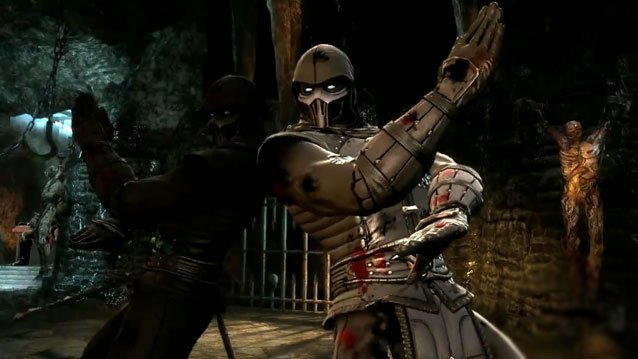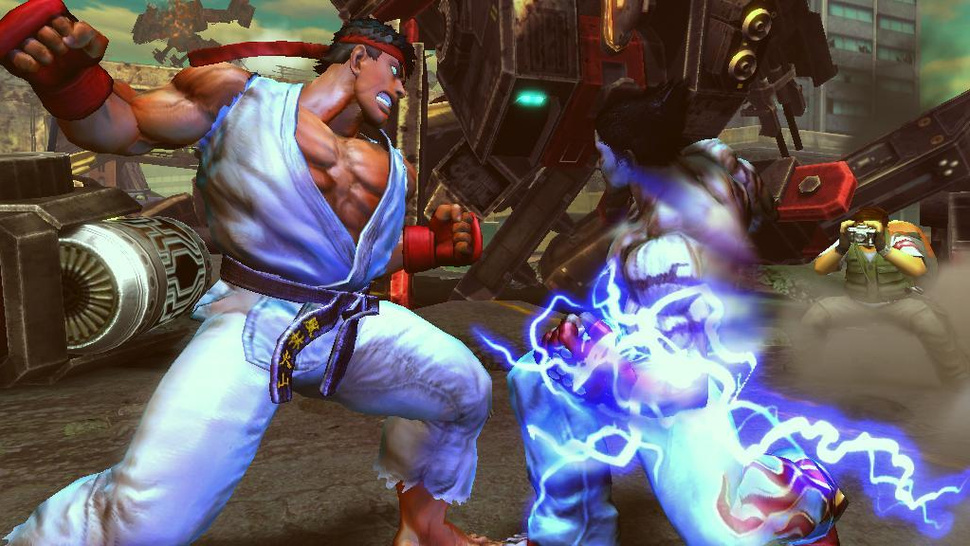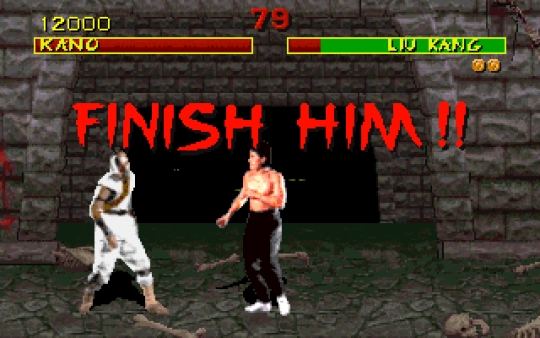Last updated on January 24, 2014
Since it seems the Christian game community suddenly finds itself on the idea of preconceived notions and judging things on face value, allow me to say a few words: Maybe we all judge the traditional video game on face value.
I can say, for a fact, that fighting games scare me with their dexterity, execution, mind games, and mental speed requirements. Even though I always was and remain a great fan of most two-dimensional fighters, I can’t say with any confidence that my modicum of skill could fit into any category other than “noob”.

Enjoyment from the wide variety of character designs, special moves, and exquisite animation aside, fighting games hide a deep, deep well of depth beneath their pretty facade. Some game just merely copy the format and expect to succeed in arcades or otherwise, as so many forgotten Street Fighter II clones of the 1990s will demonstrate. Others stand the test of time, several iterations becoming mainstays of the fighting game scene. In America, Street Fighter and Capcom fighters rule the roost, continuing to bolster and grow a once-dying scene singlehandedly through dedicated players and constant appeals for new fighters. That same passion obviously exists in other quarters, but rarely in attempts to create communities in disparate areas, travel all over the world for tournaments, and striving hard just to play these games!
SNK, the creators of the much lauded Neo Geo Arcade System, went bankrupt in 2000 and landed in the hands of a Korean company; somehow, they’ve survived through good business practice (although at times we all worried) and a dedicated fan base, much of which finds itself in Spanish and Portuguese speaking countries (or, for the less educated reader, Mexico, Central and South America).
Japan, the home of all these various fighting game creators, kept 2D fighting games alive in their home country through the competitiveness of the arcade scene, where bad games go to die and good games go to triumph. They tend to pick a character, top or low tier, and learn them in their entirety; that is often way players look to Japanese match videos and tutorials.

Everyone learns from everyone worldwide, and this strange collaboration known as the fighting game community (FGC for short) continue to amass their wealth of knowledge. Like other video game communities, the Internet allows subcultures revolving around specific genres and game to thrive where they otherwise couldn’t; the advent of online play added even more to that basic mold. Here’s a small sampling of the amassed data, and several other wikis cover other games. Mind boggling, to say the least. If there’s a fighting game with any competitive viability whatsoever, somebody somewhere plays it, online or in an obscure Japanese arcade where 20+ year old arcade boards just keep chugging.
So, this doesn’t sound intimidating at all, right? So, of course, I pick one of the more execution-heavy game to start: King of Fighters XIII. Since it absorbed 40 hours of my life, I can tell you that if you start playing fighting games with the right attitude, everything will change. Fighting games exist as a conduit of self improvement. People in the English-speaking community play anyone, from beginner to expert, and they’re incredibly generous with tips and help if you just ask. Honestly, just playing the game on Steam recently, I’ve met some friendly people who just really love fighting games. We’ve talked about video games in general even when the person couldn’t actually RUN the game (seriously 4GB of RAM still sounds like way too much for a game like this), and I’m really interested in playing other fighting games too. Their passion comes through not just in their skill, but in their attitude, summed up nicely by this tweet in particular:
The moment that makes or breaks a FG player is the moment you realize you suck. You either accept it and improve, or deny it and fail. #FGC
And I realized that I sucked over vacation. I am really bad at them, in many, many ways. But losses aren’t a way to demonstrate you as a failure, but a time of self-reflection and understanding. Why did I lose? What could I do differently, and what options did I not use? Am I playing a character correctly, or am I playing them incorrectly? Ask yourself these questions and figure it out, do the research mess around in training mode – do anything but make excuses. Excuses don’t produce wins. Get blown up by an expert, and desire to improve, not complain about how you can’t beat them. They owned you; now own them.

There’s a reason why Ryu travels the world looking for strong warriors to fight: by doing so, he improves himself, win or lose. There’s a clear, objective quality to fighting games: a win is a win, and a loss is a loss, but you should always strive to win. That’s the whole point. And that’s also the whole point of Christianity, a transformative experience which allows us to see the world anew and continually improve towards a goal out of reach, yet also within sight:
Therefore I urge you, brethren, by the mercies of God, to present your bodies a living and holy sacrifice, acceptable to God, which is your spiritual service of worship. 2 And do not be conformed to this world, but be transformed by the renewing of your mind, so that you may prove what the will of God is, that which is good and acceptable and perfect.
Romans 12:1-2
Are fighting games violent? Yes, the idea of coercive force comes up in the very name of the genre. Are the stories often of good versus evil, in the most basic of senses, and do we build narratives around it to make them more exciting? Of course, the same way ESPN reports on every game as a long-standing narrative between one sports team or another. Do they also encourage community building and friendly competition? Why, yes they do. In the end, the fighting game turns into a locus for people to converse, make friendships, improve themselves, and have fun. Human civilization treated games in this particular way, even professional sports, for thousands of years, and video games aren’t any different in that regard.
Of course, this isn’t limited to fighting games; plenty of other competitive genres fit right within these same categories, and even the most obscure game gains an audience and a community which hopes to expose their favorites to a wider audience.
To judge them any different takes them at face value. It judges their appearance rather than seeing what lies beneath. And it’s much better than making friends with an imaginary wolf, isn’t it?
